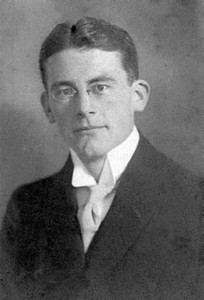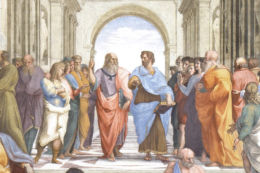2,417 words
Part 3 of 14 (Part 1 here, Part 2 here, Part 4 here)
When Socrates finally speaks directly to Gorgias, he asks a simple, straightforward question: ‘What is your art (techne)?’ To which Gorgias gives a simple, straightforward answer: “Rhetoric [rhetorike] is my art, Socrates.”
Socrates continues: “Then is it best to call you a rhetorician [rhetor]?” Gorgias agrees and amplifies: “Yes, Socrates, and a good one too, if you want to call me what, as Homer puts it, ‘I boast myself to be.’” Earlier Gorgias said nobody has asked him anything new in years. He’s heard it all. (more…)











